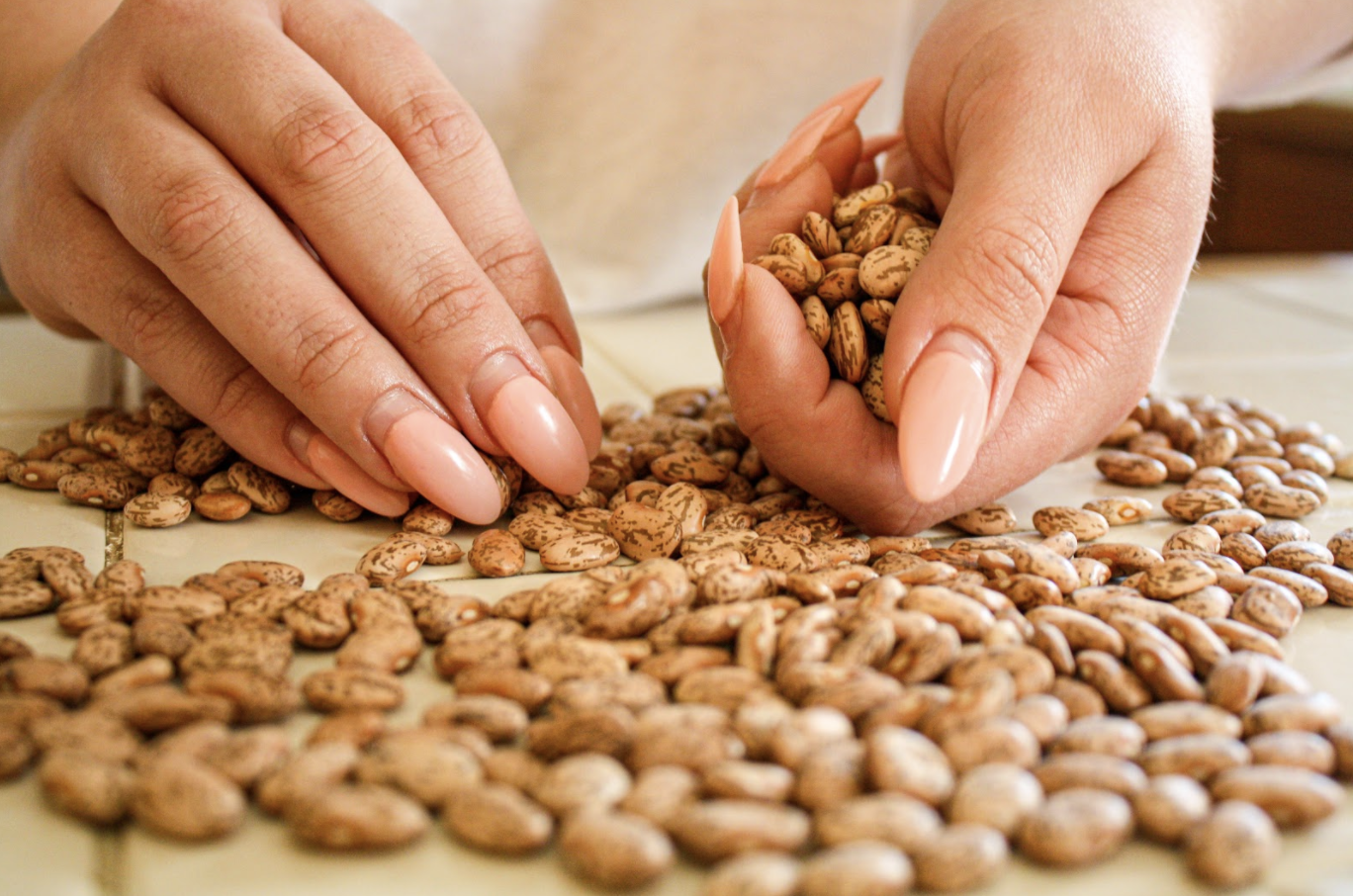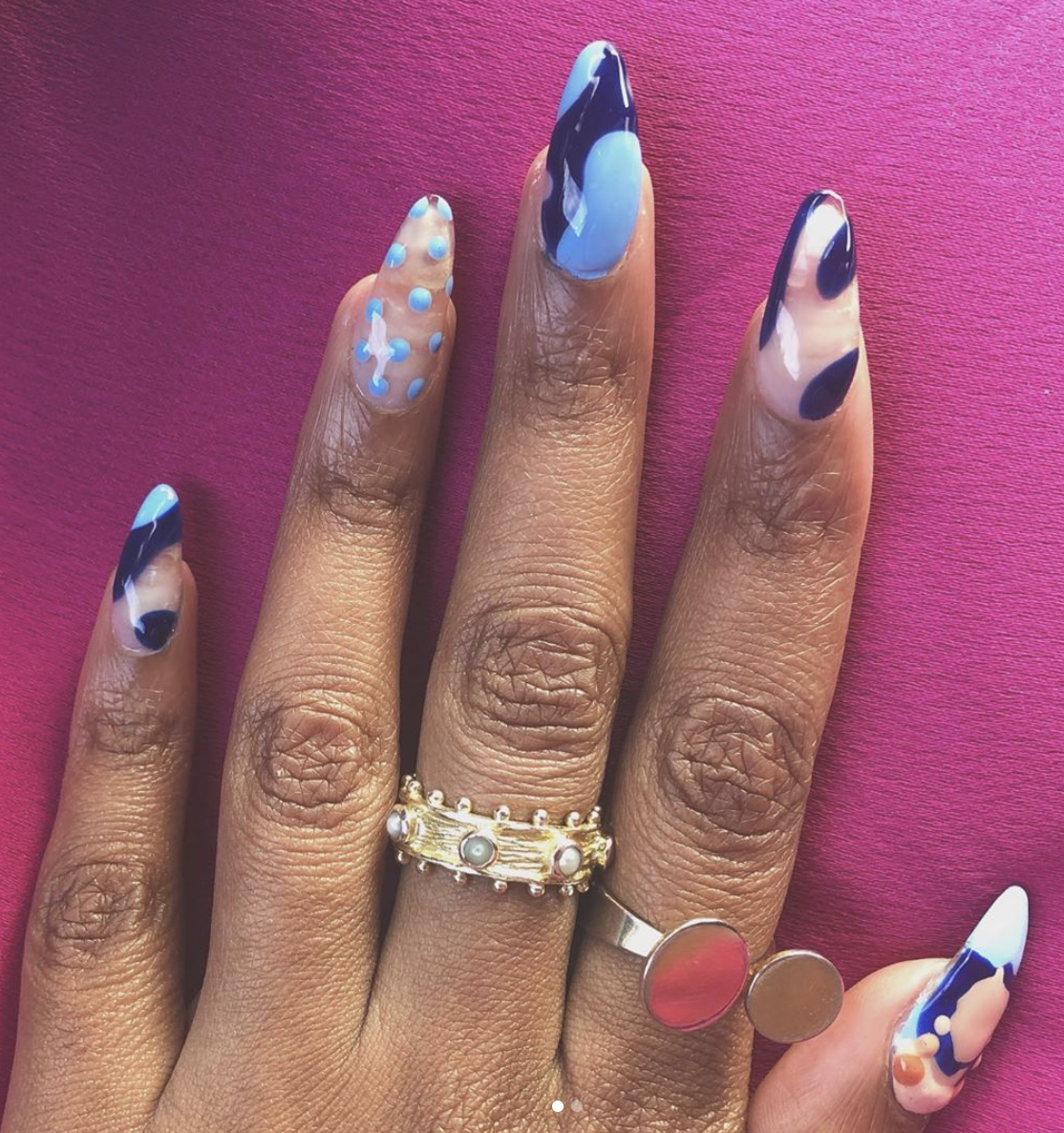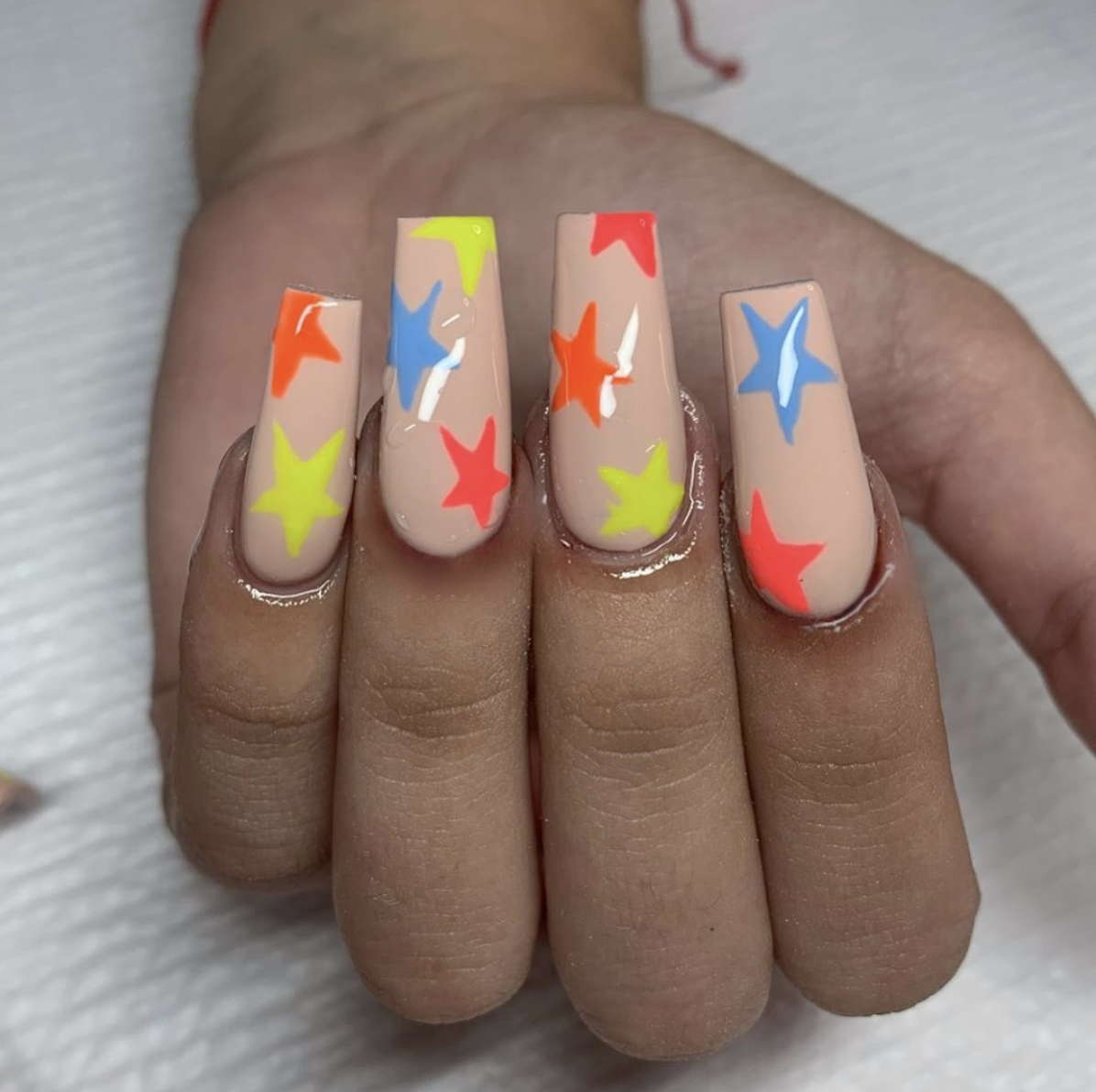Manicures Are Non-Essential But For Latinas, Acrylic Nails Have Always Been More Than A Luxury
For as long as I can remember, each and every time my mother has sat down at the table or leaned against our counter to sort through and clean her pinto beans, she has told me and my sisters the same story over and over again, almost as a ritual.
The story paints a picture of my adolescent mother, dark brown skin and darker hair, picking through the leftover beans her mother had already sorted through, trying to find the small beans that were split down the middle.
She would take the halves she found, put craft glue on the ends, and press them onto whichever fingernail they fit best. When all 10 nails were dry, she would paint her new makeshift nail extensions with red polish and take on her day.

Like a church hymn I put no deliberate effort in memorizing, yet I know all the words to, I recall my mother’s voice saying “I wanted fake nails because they made me feel smart. I saw women speaking in both Spanish and their hands, and their long, colorful nails made them look sophisticated and intelligent to me. The nails were who I wanted to be.”
When the news hit of COVID-19 and the limitations on social life that would follow, both meme pages on social media and the Latinx women in my life poked fun at what would become of all the Latinxs who could no longer keep their nail appointments. As the severity of the coronavirus increased, nail products became less available on the shelves of my local drug stores. And while some people were stocking up on toilet paper, some were quietly making their way to the beauty aisles.
When the women in my own life started their stockpiles of press-ons, my mother laughed behind a bowl of half cleaned pinto beans and said, “Everyone should just glue on beans like I did.”
This got me thinking; as the death toll rises and unemployment rates skyrocket, the things that society deems “non-essential,” such as nail services, are falling so far beyond the back-burner that they are seldom, if ever, being discussed. When lives are being lost, the grieving of a temporary naked nail isn’t worthy of being mentioned.
For Latinx women, acrylic nails have always been more than an ornament or a luxury.

For centuries Latinx women have used nail art as an outlet for feminity, individuality, and self-care. Decorated nails serve as an extension of language and heritage. As my mother said, she saw the women who came before her speak with their hands, teaching the younger generations that there is power and intellect in femininity. For many Latinxs, that strength can often be tied to the nail. So what happens to Latinx women when that cultural ceremony is threatened?
Nail appointments alone often serve as an escape from the daily life and struggles Latinx women face regularly.

Half church, half therapy — the nail salon is a place for both communion and mental health. With the constant weight of responsibility Latinx’s face from both society and their own families weighing on them, the nail salon is one of the very few places women of all generations have used to carve out a space for personal care without judgment.
Often mistaken as relics of self-sacrifice and duty, Latinx women have made a culture around using acrylic nails as a siren call to our refusal of being boxed in.

If the world is going to tell us we can only be the homemakers, the child bearers, the caretakers, the cooks, the cleaners — then the middle finger we stick up at them should at least be decorated.
But with COVID-19’s shelter-in-place having no end in sight, it’s safe to assume Latinxs all over the country are silently dealing with feelings of anxiety over their current loss of appendages. And while in no form do natural nails equate to human lives lost, there is still room in this conversation to acknowledge the validity in feelings of upset over sacred traditions being uprooted.
While it’s seen as sacred for church congregations to gather in their vehicles in parking lots in efforts to recreate some semblance of a sanctuary, the longing for nail salons and their comforting familiarity in this time of complete distress can be seen as vain and frivolous.

That’s the thing about tradition. Unless you practice it, it’s nearly impossible to understand it. And for the majority of this country, it seems almost nonsensical to say that without two inches of painted plastic adhering to your nails, you feel as though it is more difficult to face the day. That without your bimonthly appointment for a fill, you can feel your confidence draining. It sounds absurd to someone who can’t grasp, that for Latinx women who are under even stronger pressures of taking care of families, depleting incomes, all while still facing prejudice within this system during this unprecedented time, we can’t help but feel that if we could only have our acrylic nails this would all feel more manageable.
However, the spirit of my mother in her childhood still dances in my head. When she wasn’t of age to get professionally done acrylics yet, her glued on beans did not feel less like power to her. When she craved control over her womanhood and future as a Latinx, it was not the acrylic that gave her that affirmation, but rather her ingenuity and creativity of which always lied inside of her.
During this pandemic era where we are learning how to live a life we have never known, questioning our own future as Latinxs, all while teaching our own hands how to move without the acrylic extensions of our identity, we should remind ourselves as my mother reminded me that the acrylic may be the tool, but the hands that hold them were always the makers. The nail does not make the woman. Just as my mother always taught me, the woman makes the nail.




